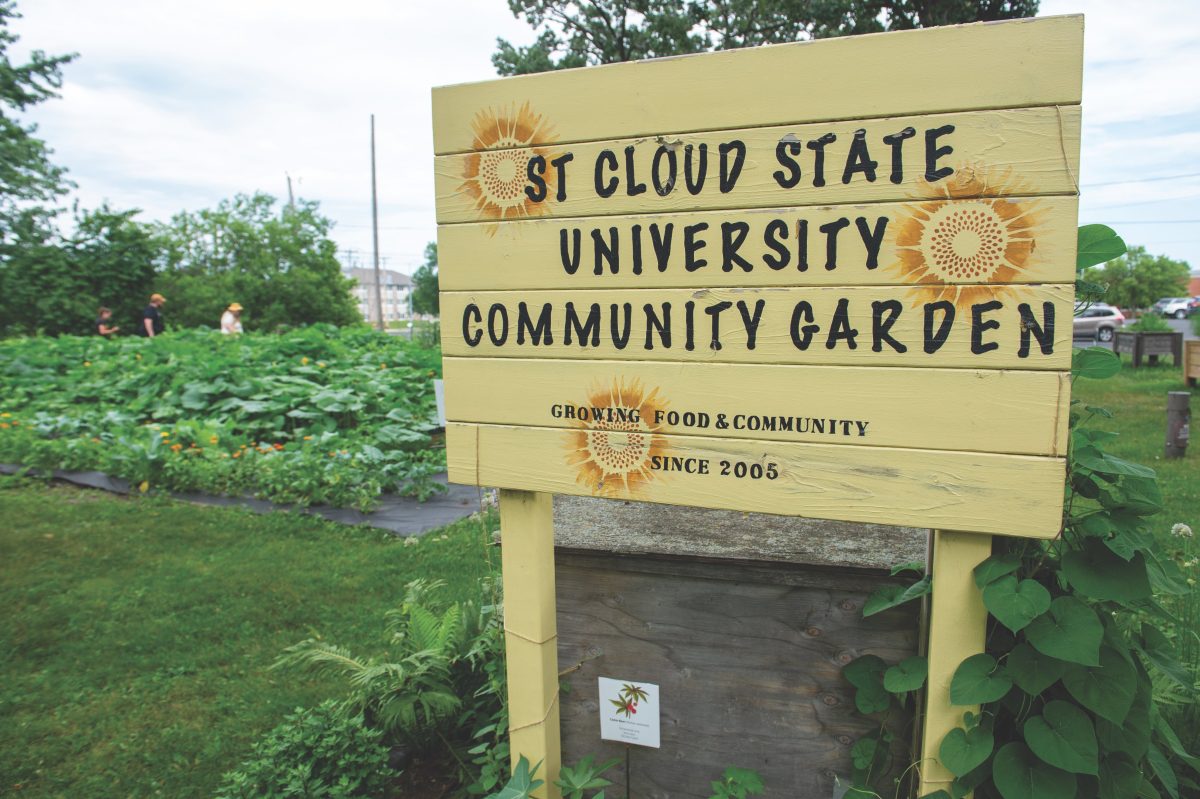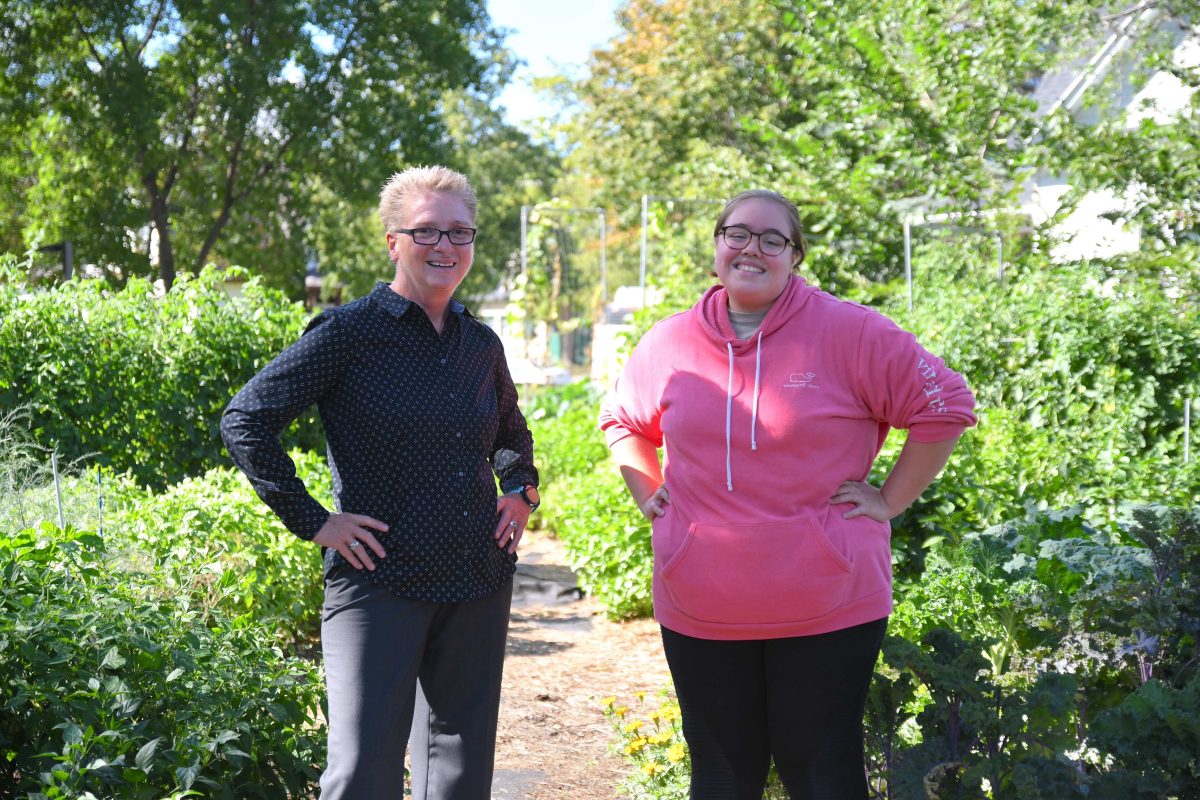
One of the most notable senior capstone projects Mitch Bender’s environmental and technological studies students ever undertook was development of an eight-year plan for the SCSU Community Garden in its early years – a blueprint for its future and the groundwork for an irrigation system and other critical components.
The students involved in the project got so caught up in it that they started building the irrigation system and continued to work on it long after the project report was turned in. “I always try to incorporate a service-learning component in the capstone projects,” Bender said. “It means more to them if they’re working with the community.”
Bender’s capstone assignments, intended to involve small groups of students in using a variety of communication and team-building skills to complete a real-world project, also have included garden signage, a bike rack, raised garden beds, and the design for a gazebo in the north garden.
Other professors have integrated the garden into successful learning activities. Debra Gold’s anthropology class conducted an excavation of its grounds. Some have brought students through to study the garden’s structure or to assign creative internships.
In her capacity as a mentor for the HuskiesAdvance student success program, Ore recently worked with student mentee Jade Antecino, meeting regularly and exploring how the garden is a vital part of the community and has become a focal point for gatherings, strengthening community connections among its neighbors, and providing nutrition for local families.
The garden is a rich resource for teaching and learning and for bridging academics and the community. It’s the campus garden in that it has been embraced as a place for faculty, staff, retirees, and students to volunteer and harvest fruits and vegetables and friendships, as well as a source of sought-after produce – fresh or canned. Faculty and staff often come by the garden or Farmer’s Market to get gifts for coworkers and friends and family.

Ore is especially proud of the garden’s 60 varieties of tomatoes, symbols of its commitment to diversity. “Tomatoes, it’s one of our showy things,” Ore said, as she points to her pet varieties with names like “black strawberry pink tomato” and
“vintage wine tomato.” And “purple rain” – “how can you not grow that”? she jokes, adding that she’s a sucker for clever names. “I can never be left alone with a seed catalog.”
With the garden, Ore has created a haven where she and others can find a place to belong and to be part of that something bigger that people often seek in life. “I definitely feel like I’ve achieved my primary purpose of growing community with the garden, bringing people together for a common purpose – making connections on campus and in the broader community,” Ore said.
Over time she has built meaningful relationships with many organizations and individuals in the community. “I can’t go anywhere where I don’t run into someone I know who is connected with the garden or connected to someone who is,” Ore said. “The networks she has in the community are mindblowing,” said Debra Japp, retired professor of Communication Studies and garden volunteer.
Those networks have been built in part through produce philanthropy, giving things to other gardens like that at St. Cloud Tech High School and Place of Hope.
The garden also has become a partner with the community in expanding the cultural aspects of food, especially its six different kinds of unusual basil and other herbs. “Jules Bistro was the first official partner,” Ore said. “For years we have delivered herbs to her. Now we also deliver Tulsi, a special kind of basil, to Kohinoor, the Indian restaurant downtown.”
What’s Ore’s vision for the future of the garden? “The corner lot where the Women’s Center used to be would be a gathering place and entrance to the university with raised beds with native flowers,” she said. “Also I would incorporate the white house between the main part of the community garden and the north garden – as a possible venue with café with food from the garden, as well as a place for canning of garden produce – a model of sustainability, and a warm, welcoming place.”
In the meantime, the SCSU Community Garden can simply be a place where volunteers can get away from politics and commune with hummingbirds and butterflies as well as like-minded aficionados of amazing fruits and vegetables – a place where most times the worst enemies are pesky potato beetles.
